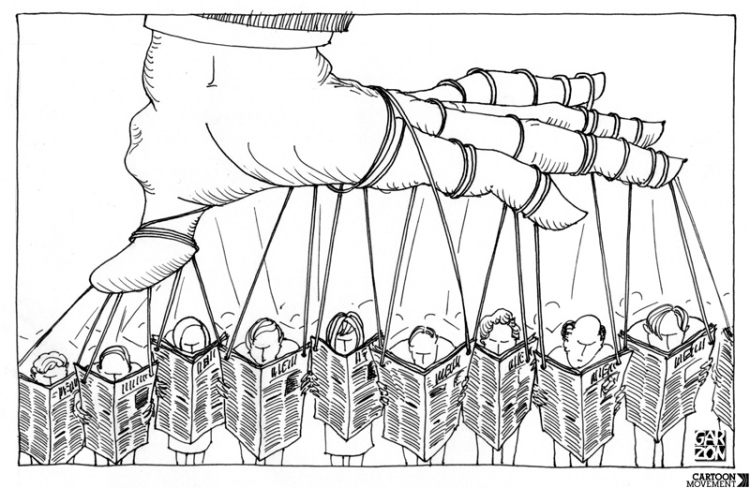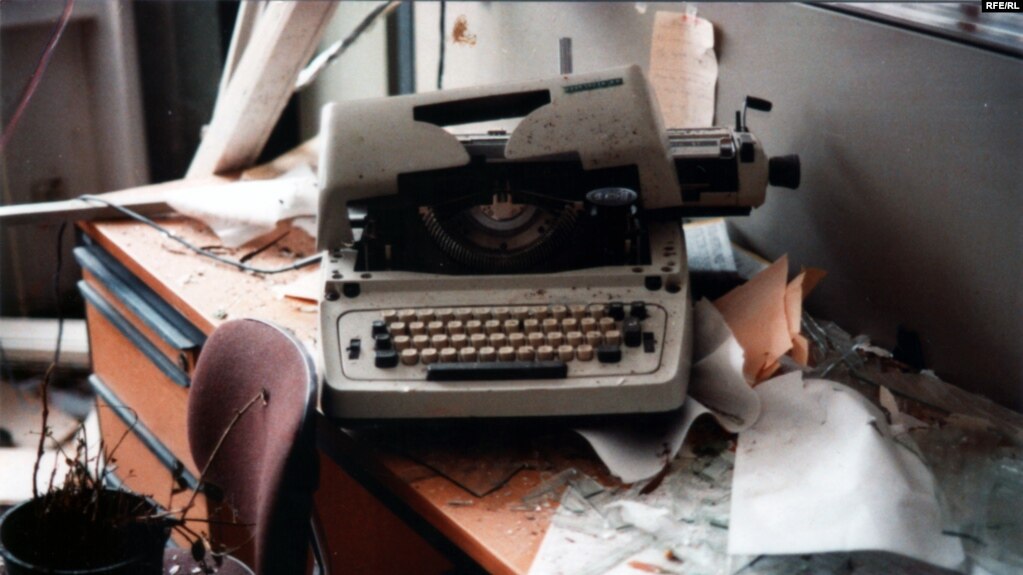Targeting RFE/RL

(Garzon, Alfredo. "Media Control." 3 May 2017. Drawing. Cartoon Movement.)
Starting in the mid-1970s, Ceaușescu and the Securitate (his elite security force) targeted members of RFE/RL's Romanian service under the so-called "Operation Ether." Multiple radio hosts were hospitalized, targeted in assassination attempts, and three members of RFE/RL's Romanian staff are suspected to have been murdered as a part of Operation Ether.
Ceaușescu controlled the Romanian media, but he was fearful of RFE/RL because he could not effectively prevent RFE/RL from communicating to the Romanian people through radio broadcasts.
On February 21, 1981, Ceaușescu ordered the bombing of RFE/RL's headquarters in Munich, Germany, targeting the Romanian service. Ilich Ramirez Sanchez (aka Carlos the Jackal) orchestrated the attack involving a 30lb bomb that was accidentally planted near the Czechoslovakian service instead of the Romanian. The explosion injured four people.

(Cummings, Richard. "RFE/RL Will Continue To Be Heard." 22 Feb. 1981. Photograph. RFE/RL.)
Believing that this was enough to terrorize RFE/RL into silence, high-ranking members of the Securitate congratulated Sanchez on his successful operation.
In response, the president of RFE/RL, Glen Ferguson said to his staff:
"Four of our employees are injured, our building is damaged, but RFE/RL will continue to be heard."
—Glen Ferguson (Cummings, "RFE/RL Will Continue To Be Heard," 22 Feb. 1981)
RFE/RL communicated to Ceaușescu and their listeners that they refuse to be terrorized into silence and continued to broadcast to Romania despite Ceaușescu's desperate attempts to stop them.
For Romanians, RFE/RL beckoned the spirit of revolution.
For Ceaușescu, RFE/RL was a threat to his regime.
For RFE/RL, they resolved to broadcast the uncensored story to Romanians despite the dangers.